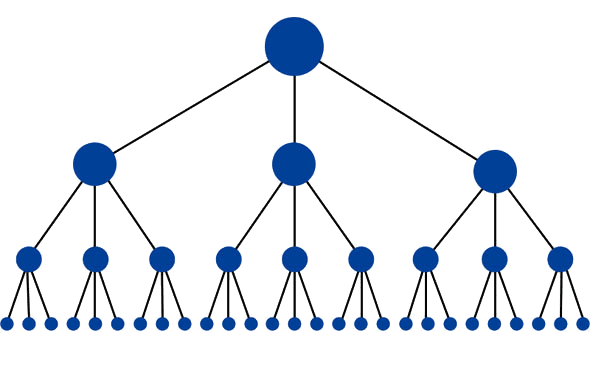Low search volume(LSV) keywords aren’t searched for a lot but they still hold high value for SEOand the Web. This article will show how and why.

The Low Volume Keyword Opportunity (8,000+ visits in 3 months)
Keyword Selection Is About More Than Just Search Volume
When choosing keywords, strategists in the search engine optimization(SEO) community consider a variety of factors, including relevance, intent, search volume, and organic search competition. Collective Measures is frequently asked about our keyword selection criteria, and monthly search volume is one of the most frequently asked about metrics. Finding high-volume, high-converting, low-competition keywords is the ultimate gold mine for an SEOexpert. These keywords are few and far between, so low-volume keywords are a good substitute.
Thinking about keyword and topic selection in a different way — putting relevance and intent ahead of search volume — can produce excellent results for contentsuccess in search engines.
Why LSV Keywords Are Good For SEO
But it's not all danger. LSV keywords have many advantages in SEO because they strike a balance between search volume, trend, and ranking difficulty.
They’re More Relevant
An independent bookstore is unlikely to rank for a search term such as "books." However, "mystery books for 9th graders" may work better. A high school student searching for mystery novels is more likely to use the long-tail variant rather than just "books."
Every stage of the sales funnel requires precision. Customers want specific types of products or services, and Google prioritizes relevance in its ranking algorithm. Longer keywords that meet that need are more likely to convert.
Easier Wins Over Your Competitors
There are always more powerful competitors in every field (unless you are one of them). That is simply the nature of business. They have more resources and moneyto go after high volume keywords.
But in doing so, they expose themselves. A keyword research tool can identify terms for which they still rank but are not in the top ten.
There's an SEO meme that says the best place to hide a dead body is on Google's second page. I'm not suggesting you resurrect any dead bodies (figurative or literal), but you can certainly succeed where they have failed.
Consider low search keywords to be tiny breadcrumbs, or as they're colloquially known, "low-hanging fruit."
Great ROI
Assume you're selling Halloween hampers. They are sufficiently niche that competition should be minimal. You may not receive a large number of users (and they will not be consistent because it is seasonal), but your chances of ranking are much higher, which means you have a better chance of converting the small number of users you do receive.
However, suppose you don't have time to write blog posts about these hampers and decide to outsource them. Hampers range in price from £50 to £100, and a couple of blog posts cost around £500. That's ten smaller hamper sales to cover the cost of the blog posts.
If your keywords have a search volume of 50-100, you should aim for a conversion rate of 5% to 20%.
Ignore keywords with low search volume at your peril!
LSV Keywords Make SEOs Even Better
The issue with high search volume keywords in that context is that you are less likely to find specific improvements to improve your rankings because they may not exist. Backlink profiles come into play at this point. Bigger rivals will have more backlinks, more traffic, and higher CTRs.
Low search volume keywords, on the other hand, are unique. Finding a keyword in your niche with a low search volume creates a buzz. Even better if there is no competition and you can attract the right users and traffic.
Why LSV Keywords Are Good For The Web
Keywords with low search volume have marketing value, but what about the rest of the Internet? After all, without it, online marketing would be extinct.
Search Engines Are Pyramids Of Links
Google SERPs have evolved significantly since 1998. Organic results were king until PPC adstook over at the top of the page. Then, in the mid-2010s, SERPfeatures appeared, pushing organic results even lower.
With ten SERPs, Google's algorithm prioritizes the most relevant pages first. That leaves 90 links supporting the first page of the top 100 results. In some ways, it's similar to a link pyramid, with a higher percentage of "less relevant" links at the bottom and a lower percentage of the most relevant at the top.
Helping The Smaller Sites
Everyone is vying for the top spot (or Position Zero if it's available), but there are hundreds of other links below. The Web as a whole does not discriminate against content; search engines such as Google and Bing do. So, should we disregard those 90+ links or give them a chance?
It may be idealistic to believe that we can combat search enginehierarchies by focusing on the top ten links, but it would result in a more accessible Web. We don't know whether Google considers CTRs when ranking, but it gives value to people who spend hours writing content but don't get the clicks they deserve.
Answering Questions To Combat Fake News And Clickbait
Many long-tail keywords are questions because users require answers. That was the purpose of the Web and search engines. In an age of fake news and clickbait headlines, it is everyone's responsibility to answer those questions clearly and informatively.
It all comes down to enticing the user to read, but the power of the headlines frequently outweighs the strength of the article.
With billions of searches performed every day, you can't afford to attract people and then fail to meet their expectations. It's unjust and contrary to the purpose of the Internet.
People Also Ask
What Is Search Volume?
The average number of times a specific search query is entered on a search engine per month is referred to as search volume. The number of searches using national level data is represented by the volume in the main Semrush database. As a result, volume can change when you switch to a different regional database (US, Canada, UK, etc).
What Is A good Search Volume?
What Is an Appropriate Keyword Search Volume? It depends, as with everything else in SEO. The simplest solution is to aim for a monthly volume of 100–1,000 searches.
Should You Target Low Volume Keywords?
Low-volume keywords frequently provide you with a one-of-a-kind opportunity to target topics that are highly relevant to your audience — topics that your competitors are unlikely to target at all. They aid in generating interest. Low-volume keywords can help you generate interest in a small or new niche.
Final Words
Going after popular keywords works if you have the time and money.
If you're lacking in either, a tangential approach may be preferable.
This strategy avoids traditional longtail keywords in favor of extremely lowtraffic but highly targeted keywords.
These are keywords where you can interrupt the customer's purchase process, capitalize on the success of a popular product, or provide a faster solution to a common problem.
Because such keywords have low search volume and competition, you can rank without investing in backlinks. And, when combined with the right copy and offers, you can turn them into hundreds of paying customers over time.


